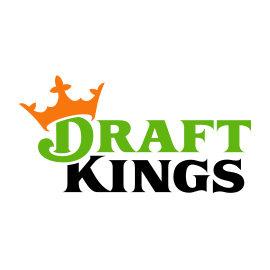In a legal battle that could reshape the use of athlete likenesses in the sports betting world, a Major League Baseball (MLB) players union affiliate has filed a lawsuit against two prominent sports betting companies: DraftKings and Bet365. The suit claims that these companies are using player images without proper authorization, raising questions about intellectual property, athlete rights, and the evolving relationship between sports and gambling.
The Crux of the Lawsuit
At the heart of the issue is whether or not companies like DraftKings and Bet365 are using the images of MLB players for commercial purposes without obtaining the necessary permissions. According to the lawsuit, these betting platforms have allegedly been using photos of professional baseball players in their promotional material, fantasy sports leagues, and gambling platforms to engage users and drive business.
The MLB Players Inc., an affiliate of the Major League Baseball Players Association (MLBPA), claims that these images were used without securing proper licenses or giving players a share of the profits generated through their likenesses.
The lawsuit, filed in the U.S. District Court in New York, states that the players’ likenesses, which include their photos, names, and other identifying characteristics, are valuable intellectual property. The suit demands that DraftKings and Bet365 stop using these images and seeks compensation for the unauthorized use.
What is the Major League Baseball Players Association?
The Major League Baseball Players Association (MLBPA) is the collective bargaining representative for all current Major League Baseball players. Established in 1966, the MLBPA has grown into one of the strongest labor unions in professional sports, representing more than 1,200 players across the league. The association is responsible for negotiating collective bargaining agreements (CBA), advocating for players’ rights, and managing business matters, such as licensing agreements related to the use of players’ names, images, and likenesses.
Through its commercial arm, MLB Players Inc., the union handles group licensing for player endorsements and intellectual property rights, including the use of player images in merchandise, trading cards, and media. This allows players to profit from their likenesses while ensuring that companies seeking to use player images do so in a legal and ethical manner. The MLBPA also works to protect players’ interests in areas like pensions, health benefits, and working conditions.
This lawsuit reflects the MLBPA’s commitment to safeguarding players’ rights in an era where digital platforms and sports betting are becoming increasingly prevalent. By taking legal action, the players’ union is emphasizing that the unauthorized use of athletes’ likenesses by commercial entities must be addressed and compensated properly.
Why This Matters for Sports and Betting Platforms
This lawsuit could have significant implications for the sports betting industry. As sports betting becomes more mainstream and integrated with professional sports, the use of player images and data has become a key marketing strategy for platforms to engage fans. But this raises the question: where is the line between fair use and unauthorized exploitation of athlete likenesses?
Traditionally, companies must obtain licenses to use images or names of athletes for commercial purposes. This can be particularly crucial in industries like fantasy sports and sports betting, where the connection between the players and the product is integral to business. Without clear permissions, companies may be infringing on the rights of players.
If MLB Players Inc. is successful in this lawsuit, it could set a precedent for how betting companies and fantasy sports platforms handle player likenesses in the future. Sports leagues, teams, and betting platforms may need to negotiate new licensing agreements or risk facing similar lawsuits.
Broader Implications: Protecting Athlete Rights
This lawsuit highlights a growing issue in professional sports: protecting the rights of athletes in the digital age. As technology evolves and athletes’ images are used in more commercial products, their control over their personal brand becomes increasingly vital. For many athletes, especially in leagues as prominent as MLB, their name, image, and likeness (NIL) represent valuable assets, often just as valuable as their performance on the field.
This case mirrors broader trends in sports. The NCAA recently made significant changes to how college athletes can profit from their NIL rights. While professional athletes have historically had more control over their likenesses, the surge of digital platforms, sports betting apps, and fantasy leagues means there’s more at stake when it comes to managing these rights.
The MLBPA has a history of defending these rights vigorously, ensuring that MLB players are not only fairly compensated for their on-field performance but also for the off-field use of their brand and identity. This lawsuit is a continuation of the union’s longstanding role as a protector of player rights, extending into new digital and commercial realms.
The Sports Betting Industry’s Response
At this stage, neither DraftKings nor Bet365 has made public comments on the lawsuit, but it’s likely they will argue that their use of player images falls under fair use or some other legal exemption. If the case goes to trial, it will test the boundaries of intellectual property law in the context of sports betting.
For sports betting companies, this lawsuit could be a signal to rethink how they engage with player likenesses. Partnerships with leagues, players’ unions, or individual athletes may become necessary to ensure legal compliance and to avoid future legal battles.
Conclusion
The lawsuit filed by the MLB Players Inc. against DraftKings and Bet365 underscores the ongoing tension between athlete rights and commercial use in the digital age. As sports betting platforms grow in popularity and influence, the way they handle player likenesses could face increased scrutiny.
For athletes, this case is a reminder of the importance of protecting their brand, while for the sports betting industry, it’s a call to ensure that they are operating within legal boundaries when it comes to player images. How this lawsuit plays out could have a lasting impact on the intersection of sports, betting, and digital rights. The MLBPA’s involvement underscores the union’s role as a protector of players’ intellectual property, extending far beyond just collective bargaining.




